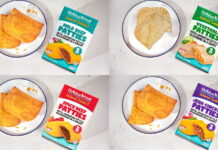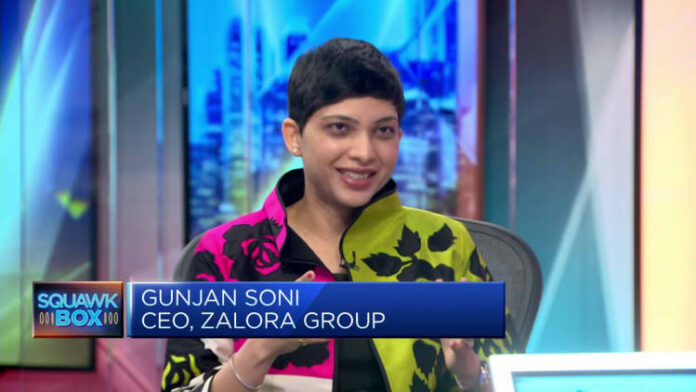VIENNA, AUSTRIA – NOVEMBER 25, 2022: Karin Teigl wears the yellow leather mini Kelly from Hermès, the green Baum & Pferdegarten leather jacket, the beige Lumina turtleneck sweater and the green and yellow vintage checked trousers.
Jeremy Moeller | Getty Images
Quiet luxury was one of the biggest viral fashion trends on social media last year – but unlike other short-lived fashion trends on TikTok or Instagram, this one has found its way into investor portfolios and delivered actual returns.
So what is “quiet luxury”?
The trend is all about understated, subtle displays of opulence, and popular shows like HBO's Succession have also helped boost its popularity.
Gone are the days of loud, flashy displays of wealth in fashion – now it's all about subtlety and minimalism.
But the trend has not only gained importance in the fashion world; investors are also starting to take notice.
Brand boost
Luxury stocks have long been viewed by some as an effective hedge against inflation. This is largely due to the segment's high prices, which rarely deter its affluent customer base, and significantly higher margins than on many other consumer products such as televisions or phones.
Essentially, the segment's fundamentals haven't changed drastically over the decades, but as the quiet luxury movement takes hold, investors are starting to cherry-pick names that broadly meet these criteria.
Some of the companies and their labels have embodied what experts call the essence of quiet luxury. Data from Southeast Asia's largest lender, DBS Bank, shows such names outperformed their “loud” counterparts in 2023.
Some of the top companies that have benefited from this new wave are: HermesMiu Miu owned by Prada, Brunello Cucinelli, Richemont Financial Company And Swatch groupaccording to DBS.
Quiet Luxury's outperformance over Loud Luxury in 2023.
DBS
“As the quiet luxury movement highlights consumers' growing preference for subtlety in luxury consumption, companies that focus on understated elegance and timeless quality will resonate with consumers and benefit from this trend,” said Hou Wey Fook, chief investment officer of the DBS Bank.
“Therefore, quiet luxury companies significantly outperformed their loud competitors by 23 percentage points in 2023. We expect this continued shift in industry dynamics to help maintain this performance split.”
According to DBS, a company falls into the “quiet luxury” category if it is understated and focuses on high quality while maintaining exclusivity and scarcity.
The bank's top picks include: Hermes, Moncler, LVMH Moët Hennessy Louis VuittonRichemont, Swatch, Brunello Cucinelli and Ermenegildo Zegna.
Treat yourself to quiet luxury for a long time
Unlike viral trends that come and go, investors look at these companies with a much longer-term perspective.
“There's this element of, 'I'm tired of all this big logo stuff,'” said Markus Hansen, portfolio manager at Vontobel Quality Growth Boutique, noting that consumers and investors now want a higher quality product.
“It comes back to the legacy of those homes that are the most successful… and the ones we invest in are the ones that have a very long-term perspective,” he told CNBC.
In Asia Pacific, the demand narrative for luxury goods could shift due to China's uneven post-pandemic recovery and weak domestic demand.
Although Chinese consumers' appetite for luxury goods has not completely dried up, luxury brands are expanding their horizons to serve other major markets in Asia.
In Asia, mature markets such as South Korea and Japan are seeing growing demand for luxury goods, Hansen said.
He added: “India is the last big market, not only in terms of population but also in terms of the increasing wealth of the population.”
A recent report from Goldman Sachs predicts that by 2027, around 100 million people in India will become “wealthy” – as defined by the US investment bank, those who earn an annual income of more than $10,000. Currently, 60 million people in the world's fifth-largest economy earn more than $10,000, the report said.
Loud luxury is not trendy
Quiet luxury stocks were upgraded in portfolios last year, pushing out brands deemed too “loud.”
As a result, Dry-owned by Gucci & Burberry have been pushed lower in the global rankings of luxury stocks, research from Bank of America Securities showed.
“We believe brands should refocus on fashion content and novelties throughout the year to re-engage customers and drive traffic,” said BofA research analyst Ashley Wallace, noting that companies focused on quiet luxury are in are better positioned this year.
BofA said it favors companies like LVMH and Hermes over Gucci owners Dry and Burberry.
















